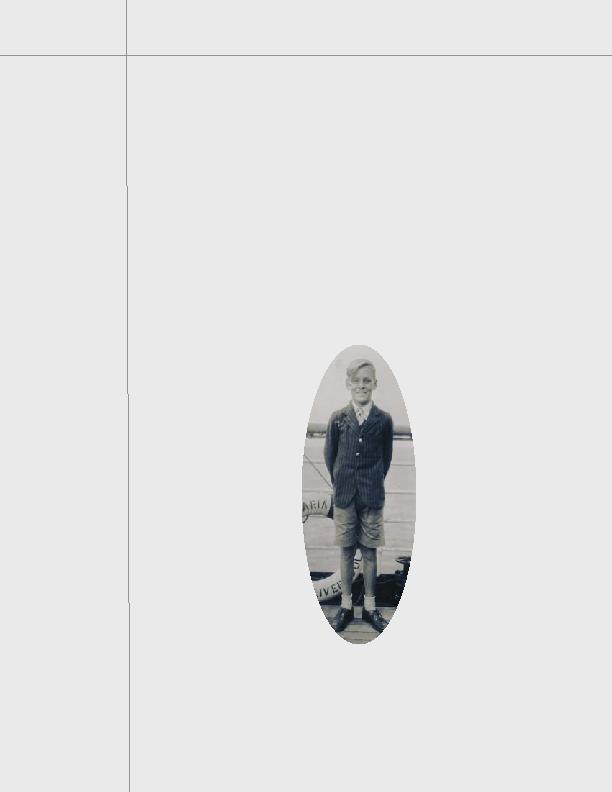
memories of quaint schoolyard games, stern
discipline, competitive sports, and pedalling his
bike along Pembroke's then-rural lanes to campus.
At 93, "Mr. Graham," as he is fondly known to staff
at Gibbons Company--where he still keeps an of-
fice and makes the rounds most mornings a week--
is the School's oldest living alumnus.
the longtime merchant, former Hamilton mayor
and father of two, whose family has seen
generations of boys--and more recently,
girls--attend Saltus. "In those days, travel
was by horse-and-carriage and pedal
bikes--if you were lucky enough, you
might have a three-speed! My family
lived about a mile away, so I rode my
bike every morning and rode back
home at lunchtime; those who lived
too far away brought lunch in a bag."
the strap and cane--but I was able
to avoid it," he says. "Closest I came,
I was putting my hands over some-
body's eyes at recess or lunch, and he
spotted me. Luckily, he just threat-
ened me, but I was scared to death!"
and Latin lessons, cricket and soccer
games and playground hijinks. "I do
remember everybody played marbles and
spin-tops and I was a very poor marble
player," he says. "A chap named Jack Frith
was an excellent player. Most people played
for fun, others played to win marbles. I'd
give Jack an orange or apple, and he would win
marbles for me."
university of Pennsylvania's Wharton School of
Business--where he created the first cricket team--
and graduated with a business degree in 1942 as
thousands of American servicemen were plunging
into the Second World War. "They were calling up
people, but the university let me finish early, so I
was one of the fortunate ones who graduated."
cipher office. "The North American West Indies
Tomlins, who came from Liverpool,"
he says. "During the bombing there,
his wife and son were killed. For
had an elderly shoemaker upstairs called
Mr. Eve," he says. "They got their start
because the Navy sold second-hand shoes.
Dockyard, and got hundreds of pairs of those shoes
which they then proceeded to re-sole and re-sell."